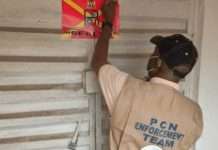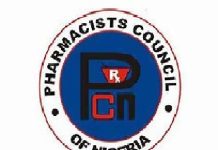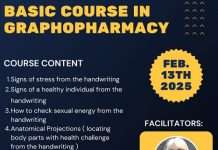In a renewed effort to make the pharmaceutical industry self-reliant through local sourcing of raw materials, the Association of Industrial Pharmacists of Nigeria (NAIP) has concluded arrangements to enter into partnership with the Dangote Group as it plans to launch its petrochemical refinery in 2018.
Speaking with Pharmanews in his Lagos office, Pharm Olugbenga Falabi, chairman of the association, explained that the pharmacy profession has reached a state where it should stop being import-dependent.
“Like the Boys Scout, we need to be prepared. What happens if those countries we are importing from wake up one day and say ‘we are cutting ties with you’? We need to look inward and begin to build capacity,” he said.
Falabi, who is the general manager of Greenlife Pharmaceuticals, noted that immediately after the 89th annual conference of the Pharmaceutical Society of Nigeria (PSN), NAIP will lead a delegation to visit the Dangote Group to make a case for a benzene plant.
The charismatic pharmacist believes that the development is necessary as benzene is a major raw material for most products and additives that the pharma industry needs. Excerpts of his interview with Pharmanews are presented below:
How would you describe the progress of NAIP so far?
Well, we have tried to keep our head above water despite the economic challenges. Thank God that, at the last AGM during the previous conference, we pre-registered delegates at the beginning of the year for the conference. Otherwise, we probably would have cancelled participation in this year’s conference (which we cannot afford to) because most companies treat attendance to the conference as an expense. But really, it is an investment.
At this year’s conference, we looked at ‘Manpower Development’ and we got one of our own, a former human resource person with GSK. He is a faculty member who really dealt with the topic. Participants were happy and everyone demanded for the paper of that particular topic.
Generally, the recession took its toll because, as you know, the industry is highly imports-dependent. The local manufacturing industry is not spared too because the only thing I am aware they don’t import is water. Even the treatments they have to give to the water – the equipment, the raw materials, the packaging – everything has to be imported. This is a real challenge to our industry especially the pharmaceutical sub-sector. We have tried through advocacy to make the government take a deeper look and see what it could do in terms of concession rate. Although we have not got there, we are still hoping that they should be able to do something for the Nigerian people. After all, whatever they do is not for the pharma industry, but for Nigerians.
How have your members fared in the face of this economic recession?
I have just read a report this morning in Nigerian Communication Week that was boldly captioned ‘Nigerians in Trouble as Drug Crisis, Hospital Costs Skyrocket.’ In truth, the signs were obvious from the beginning of the year when we started the advocacy. Right now, warehouses are drying out. My major challenge is that the country might run out of stock in less than three months.
Anti-infectives, antibiotics, including antimalarials, are drying up. The few people who are able to bring them in, when you look at the Forex rate, may have to apply the multiplier factor. Prices have tripled! If people cannot afford the drugs before, how many can now?
If the government hastens to the call to widen the coverage of the National Health Insurance Scheme (NHIS), that may help. It will reduce out-of-pocket spending. That should be able to cover up for the cost of medication and therapy. I heard that Lagos State is about to introduce a mandatory health insurance scheme next year (from January). If that is done, it will be very good. I have always been an advocate.
Free health is unsustainable; but health insurance is sustainable. People can be made to pay a token and since it is a state-wide thing, it might be able to drive down the premium to less than 6,000 for a year per individual. This will certainly go a long way to help our people.
I know there is a problem with the way it was set up, as regards the capitation model; but obviously, the few who are able to access simple care from pharmacies will see the difference, rather than where they will pack the whole thing inside an envelope for them and they still won’t get better.
The other challenge I think we might have with this economic situation as we had in Nigeria some years back is that we are going to have a high influx of fake drugs. There is no vacuum. We are hoping that NAFDAC will double up their effort to curtail that in terms of pharmacovigilance and in terms of going to the marketplace. The Nigerian Customs too should also be on the lookout to help us; otherwise that would be double jeopardy. You are not just buying at a high cost, you are equally buying fake.
Our members are committed to supporting the government in promoting better health for Nigerians. However we can only do as much as the economy can allow us. That is why we are appealing again to the government to allow us access to Forex at the CBN window, knowing fully well that this will be passed on to the citizens.
When they reduced the duty on pharmaceutical imports – that was what helped us so much that companies didn’t need to increase prices of drugs till the second half of this year. We are here for social service first, and then profit.
If the economic situation escalates further, is there a Plan B in place?
The last time Venezuela opened it borders, it was said that over 3,000 people crossed over to Colombia to get their medication. I sincerely hope it doesn’t get to that in Nigeria. We have 170 million people to look out for. Where are we going to source from? No doubt, there will be increase in self-medication and alternative medicine.
We only hope that it wouldn’t be too late before government considers our plea that the pharma sector should and must be seen as a social service where an emergency should be declared. They should make it possible for us to come to discuss how we can ensure continuous supply, at least for the essential medicines.
Cancer products, for instance, cannot be acquired by anybody with the present Forex rate. You know these drugs have shelf life. Rather than bring them and not be able to sell, you just have to stay away and only bring them in by demand. We hope somebody is listening.
What should Nigeria do to avoid going the way of Venezuela?
Number one, we need to come together in the pharma industry. Right now, we are divided in the line of trade associations. We have the multinational group, under the name NIROPHARM; the local manufacturers group under PMG-MAN; and another pharmaceutical importing group under APIN.
Every one of these associations goes to the same people with different demands. PMGMAN claims ‘I have the highest investment. My exit will result in colossal damage.’ The importers say ‘Hey, I bring in about 70 per cent of the pharmaceutical products people are using. If you don’t talk to me, there might be a challenge of total shutdown.’ The NIROPHARM group says ‘We are the researchers. If you don’t look at our side, you cannot improve on what you are doing. And that can be a big challenge for you.’
Now tell me, who should the government discuss with? This has been a challenge and that is where we are right now. Rallying together, we tried working under the umbrella of the Pharma Industry Practitioners Association of Nigeria (PIPAN). That couldn’t really stand as it were. There were teething problems. Right now, we have approached Alhaji Ahmed Yakasai, the PSN president, and he has chosen to shoulder the responsibility of bringing the industry together. Now we can go to the government and say, ‘Hey, there is a problem. We have this need.’ This will certainly improve the lot of Nigerians.
What is your choice of candidate for the office of NAFDAC director general?
The law that sets up NAFDAC is specific about it. It should be somebody with the most knowledge of pharmaceutical service. If we were to test that law in court, the past DG would have been removed. But we decided against it as men of honour.
Pharmacists are a peace-loving people. We believe sincerely that the current government is one that supports rule of law and will do the right thing. The present acting DG is trying her best. However we wish there could be a reversal of this directive she made recently on not issuing authorisation until NAFDAC visits a plant abroad, and that it is the plant that will pay for the inspection.
When NAFDAC visits, it is at its prerogative and not that of the plants. I think that directive should be reversed because it is increasing the length of time. This government has been preaching convenient means for people to do business in Nigeria and with Nigerians. But this is the reverse and I am hoping they will do something about it fast before it becomes a problem.
We planned to write them but stopped midway when we were told that the PSN under the leadership of Pharm. Ahmed Yakasai has already written them officially. As you know, it is better to have the PSN acting as our collective voice than to have a cacophony of noises coming from several arms of the society.
How prepared are you for the forthcoming PSN national conference?
Despite the economic situation and all that, we are mobilising our members to make sure that the conference is a success. The industry has been shouldering the sponsorship of the conference and I believe that this year will not be an exception. The chairman of national conference planning committee has been in contact with me and, together, we have been mobilising our members.
As a way to further reduce the stress and cost of transportation, we are making arrangement with the Nigerian Railway Corporation to supply us some coaches at a cheaper rate instead of operating trucks on the road to Niger State. That will definitely reduce the cost and our members are quite supportive. We know there are companies that will be ready to subsidise the coaches.
We are just to be spending 21 hours on the road. As far as I am concerned, as an industrial practitioner, that gives me a target audience for at least 10 hours. While people might want to doze off for 11 hours, I can do one or two things with them for the other 10 hours with them. I am not hawking. I am just giving them information about my products and allow people comment until we get to Minna.
Are there lessons to take away from what the crisis facing the industry?
Definitely, like the Boys Scout, we need to be prepared. What happens if the countries we are importing from wake up one day and say ‘we are cutting ties with you?’ Hopefully, it doesn’t happen. We need to look inward and begin to build capacity.
Dangote is building a petrochemical plant. Once the PSN conference ends, NAIP is leading a delegation to visit that project to make a case for a benzene plant which is a major precursor for most of our products and additives that we would need. That is what we are planning so that they can put it in their plan. So while they are looking at the entire industry, they should also consider the pharma industry in their planning. That in itself will make us to be self-reliant in the industry.
I also believe that the CET issue has been dividing the industry. It makes sense for the government to look at it, not by bringing CET back through the backdoor but by ensuring that incentives are put in place that will make even today’s importers to want to become local manufacturers within the next three to five years. With that, we might be making organic growth in our industry which is very important.











